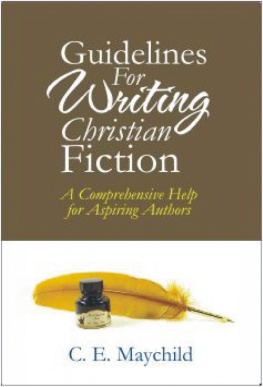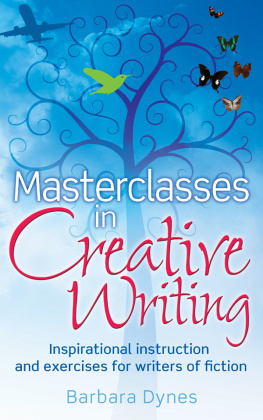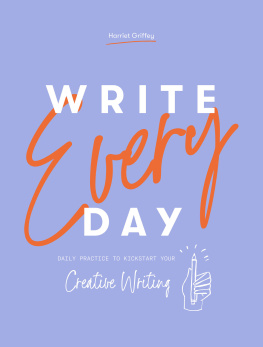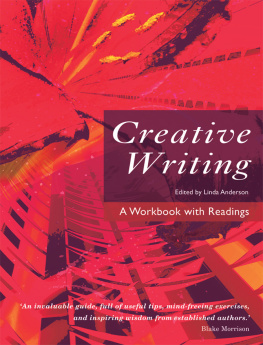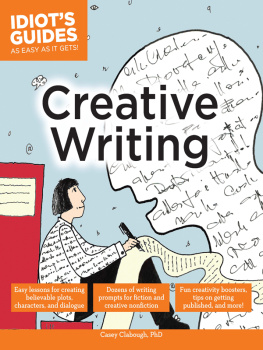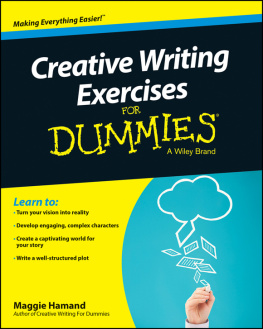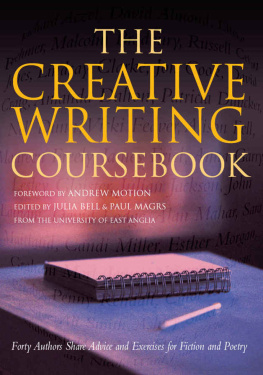CONTENTS
Guide
ACKNOWLEDGEMENTS
Big thanks are due to the following people for their help in preparing this book: Julian Jackson, Emma Hargrave and Penny Rendall and our very patient editor at Macmillan, Catherine Whitaker. Also thanks to Jeremy Hoad, Joy Foster, Stuart and Prue Bell. Many thanks to all the contributors for being so generous with their own work and experience.
FOREWORD
MARINA WARNER
Creative writing has been one of the most significant and unexpected successes in the tumultuous history of universities over the last thirty years. While students have been shying away from traditional literature and history courses, and the study of languages from French to Portuguese still sadly dwindles, more and more of them have been demanding to learn how to write and asking for guidance in shaping what they have already undertaken. At first, such courses were often offered as optional classes, supplementary to mainstream studies at MA level; but interest proved so vigorous in times of government discouragement of the Humanities that these graduate add-ons were soon offered at undergraduate level as well, and this provision quickly segued to fully fledged BAs. At least that has been my experience: we teachers were following strong student desires, not the other way around. Julia Bell, Paul Magrs and their fellow writers were early to respond to this unaccustomed enthusiasm to learn a subject, and since their now classic work, The Creative Writing Coursebook, appeared in 2001, that demand has only grown and grown.
As Julia Bell and Paul Magrs point out in their introduction, when creative writing became a university subject, teachers worried about methods can writing be taught? The answer is a resounding yes, as this rich compendium shows. The collection is packed with insights and inspiration, offerings of prompts, exercises and methods from writers in many different genres, to spur imagination and develop technical skills. Writing fiction, poetry, drama, essays is more like playing an instrument than swimming or running, and even those activities need training. You may have a musical gift perfect pitch, a natural affinity for the guitar but you will have to practise before you can play Bach. Creative writing also exacts creative reading and in the digital age, when attention slips all too easily down the slick screens of our devices, creative writing makes readers pay attention to every word, and not only to each one of them but to the structure of the sentences which hold them in place, the pattern they make across the whole work, as well as the gaps between them, to the silences, pauses, the intake of breath in a passage. As the poet and translator Michael Hoffman commented on Kafka, it sometimes seems not to matter what the words are, so much as the way they move, to and fro, from side to side, back and forth.
Learning to write requires sensitivity in listening, and it also asks that students engage closely with literature, history and foreign languages at least in the form of translated works. You cant discover how to write a political fable without grappling with Kafka.
Anxiety also hangs around the question of a career for what does creative writing prepare you? Can you have a society made up of so many hundreds of writers? Most authors scrape a living; only a few books earn over a lifetime what a dentist or solicitor, say, makes in a year. The answers to this problem are many and various: but above all I would argue that literature is one of the principal record-keepers of love and suffering, the whole human tragedy and the whole human comedy, and most of us want to enter the territory to hear what others know, to contribute what we have thought about or lived through, and, often, to imagine how things might be. Of course, many dream of prizes that will lift them from obscurity, and the prize mill itself increasingly turns to locate outliers and experimentalists Eimear McBride with A Girl is a Half-formed Thing, Anna Burns with Milkman and Robin Robertson with The Long Take. These recent examples give hope, and they spur on editors to take risks and writers to do more writing.
If you were feeling cynical, you could say creative writing has been an oddly fruitful effect of customer preferences in the newly marketized educational system. But this would sound far too negative; it wrongfully disparages a discipline with historical roots in the most dedicated classical liberal arts education. As Julia Bell and Paul Magrs remind us in their introduction, rhetoric, alongside dialectic and grammar, was one the three pillars of the syllabus that Shakespeare and Ben Jonson studied. In Stratford-upon-Avon, you can still see the half-timbered schoolhouse where Shakespeare was a pupil, where he, like all fortunate Elizabethan boys, was taught how to express his thoughts in various forms of speech and writing: to acquire the skills to write a ditty, a plea, a blazon, an elegy, or a diatribe. You can sometimes see, even in a writer as brilliantly versatile and skilful as Shakespeare, how the building blocks laid down by this apprenticeship are being assembled (here Viola emblazons Olivia, there Portia pleads for Bassanios life). This humanist tradition was followed in the United States, where liberal arts colleges (rightly named) and universities have long offered courses that involve making making music, making art, making literature and where poets and painters could become professors a long time before any of us were accepted in that role in Britain. The most celebrated creative writing school that emerged is Iowa Writers Workshop (founded l936), where, in the seventies, the dark, experimental fabulist Robert Coover invited Angela Carter to come and teach, providing her with a means of support for her own exuberant, dissident imagination.
The thriving example of the US creative writing scene spurred on the establishment of university courses here: Malcolm Bradbury, who as a scholar specialized in American fiction and was of course a famous comic novelist himself, took the US practice as the model for the celebrated Creative Writing course at UEA, where Julia Bell and Paul Magrs were teaching when they began writing and editing this volume (Bradbury contributes a chapter here on Character and Characterization). Its important to remember, however, that in post-war Britain, Ted Hughes and his close friend, the childrens writer Michael Morpurgo, started several initiatives to foster writing by the young and by the old and older; Hughes gave tremendous support to the Arvon Foundation (founded in 1968), and its residential courses have now spread to several different venues, from the original Hughes home in Hebden Bridge to Totleigh Barton in Devon and elsewhere. The demand for classes in creative writing is now so strong that newspapers, art galleries, and private enterprise of various sorts are now all vying to attract participants. Its a paradox that most publishers, policed by accountants, are looking for safe bets standard genres, established names but writers mostly want to break free and do something unique. In the long run, innovation pays off more strongly than conformity (its Kafka who matters, not whoever it was who was selling well in the 1910s).
This coursebook is a generous and invaluable treasury of ideas. Some wonderful writers have made free their talents for the benefits of others: they act like magicians who, instead of concealing the secrets of their legerdemain, show and tell. Julia Bell and Paul Magrs have edited the varied and singular array from a thoroughly contemporary perspective and this work greatly enriches the resources for teaching people what writing involves and how it can be done. Its a recipe book for writers, a guide, a map, a citizens rule book, a users manual, but one that doesnt demand obedient compliance. It asks readers, students and participants to think up new ingredients and modes for themselves, to improvise and play.


